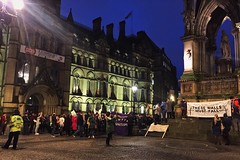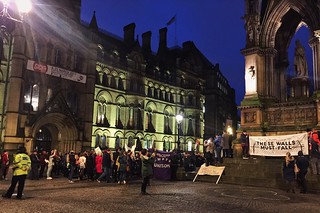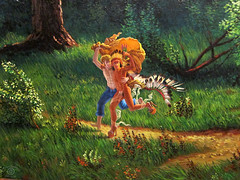Queer Latinx animator Pamela Chavez has a story she wants to share with you. Caracol Cruzando, is the name of Chavez’ 20 minute animated short that she is completing with help from Latino Public Broadcasting and a fundraising campaign on Kickstarter which began on February 17, 2017.
“Caracol Cruzando follows a young Costa Rican migrant who must decide whether to bring her best friend and pet turtle across the US/Miami border with her undocumented family.”
 The film tells a story that is particularly relevant today but connects back to stories that have been told for centuries as people have migrated, pushed out by the impact of decisions made about labor, land use, and sovereignty within and across borders. She knows that story well, because she has lived it.
The film tells a story that is particularly relevant today but connects back to stories that have been told for centuries as people have migrated, pushed out by the impact of decisions made about labor, land use, and sovereignty within and across borders. She knows that story well, because she has lived it.
“I was primarily inspired by a desire to share a part of my story that was based on my immigration from Costa Rica to the US. The im/migrant story oftentimes includes a lot of moving, surviving.”
But she knew that to tell that story she had to find an entry point for an experience that has been stigmatized, misrepresented, and criminalized. She decided to tell the story through the eyes of a child.
“I found it was a good opportunity to share a difficult experience in a new kind of way. I knew there was something more to offer than the victimizing narrative. I went on a hunt for this premise, I had to shed a lot of adult feelings to clear the way for an honest portrayal of how a kid would deal with immigrating.”
Chavez learned from filmmakers like Hayao Miyazaki who made Spirited Away and My Neighbor Totoro to bring in elements of myth in order to find images that could communicate the difficulties of migration without re-traumatizing potentially young viewers.
The journey Chavez wants to share is one that includes loss, trauma and a resilient response to the journey-a resilience that she says is often left out in mainstream retellings of the im/migrant story and one that non-immigrants can learn from.
“As immigrants we’ve developed some pretty stellar qualities to break down huge barriers. We move thousands of miles to protect our families, out of love. We choose to live with those we want to live with regardless of the loss we experience. We start and restart our families, our communities. We develop resiliency, tenacity, fortitude. When we can remember these tools, we establish clearer relationships to our own hopes, we make more decisions based on courage. These qualities are shared with all types of people who are targeted by our xenophobic and homophobic society, and therein lies our intersectionality.”
The first part of the story she knew, it was based on the last time she left Costa Rica at age six when she was old enough to be aware of the losses and young enough to express it only in her sadness about her dog who had to stay behind.
“It was the first time I can remember feeling sad about saying goodbye. It sounds trivial compared to the fact that I had to leave my grandparents, cousins, aunties, uncles and classmates. My parents and brother were undocumented so there was a lot of tension, but as a kid I mostly remember working through the feelings of having to leave my best friend, my dog. That’s how I coped with it.”
In order to expand on this story Chavez also reflected on her experience working in a community center with Afro Costa Rican activists who are organizing for their land rights.
“Afro Costa Ricans who had been in Puerto Viejo for generations were losing their homes because Costa Rica had a racist historical practice of not giving land titles to Afro Costa Ricans. Costa Rica is well known for its biological richness but what’s less known is that Costa Rica has had a very long history of people who have been resisting attempts from development projects to overtake their communities. Hotels and developers had been trying to creep in to take land from Afro Costa Ricans, capitalizing on a community that had already been marginalized. I felt particularly drawn to Puerto Viejo because my ancestors from my father’s side are from Limon, but it’s a history I don’t know very well. I was inspired to base the setting of this film on that area to highlight the present day issues, which in turn I fictionalized into what’s called Caracol Mountain.”
 Chavez always found herself drawing, painting, making murals and using graffiti arts but it took meeting queer women of color academics, artists and activists at UC Santa Cruz and organizing with youth in the Bay Area to help push her to become an artist full-time. She went to the Rhode Island School of Design and discovered the freedom of animation.
Chavez always found herself drawing, painting, making murals and using graffiti arts but it took meeting queer women of color academics, artists and activists at UC Santa Cruz and organizing with youth in the Bay Area to help push her to become an artist full-time. She went to the Rhode Island School of Design and discovered the freedom of animation.
“[In animation] there were no boundaries, no limitations in a world where being a Queer Latinx Immigrant is very limiting, full of all types of social boundaries and expectations.”
As both a media consumer and now media producer Chavez has a vision for what she would like to see and create with her work.
“I think there is a serious need for there to be an honest portrayal of Latinx LGBTQ folks in both Spanish and English language media. There’s still such a really negative representation of queer Latinxs in Latinx cultures. It perpetuates a really terrible stereotype that serves absolutely no one. I think in English-language media there are slightly more opportunities right now for this sort of representation, but I feel like Spanish Language media is still really behind. Their argument (I’ve heard) is that they’re afraid of losing viewership. But is this fear silencing Latinx LGBTQ communities like xenophobic people are silencing our immigrant communities? How can we stand up against xenophobia but in turn reflect the same sort of fear of acceptance of people within our own families? The Latinx Spanish speaking community is ready for accurate and visible representation.”
Supported by her wife, communities and mentors like queer independent filmmaker Aurora Guerrero, Chavez has worked to tell a story in a way that is authentic, free of stereotype, specific, and empowered. Her message for young artists and activists, especially those who are LGBTQ Latinx, living under an administration that has given license to an open and aggressive xenophobia:
“Honor your feelings about safety. Make connections with other folks who share your values, with adults that can support you to grow in all good directions, who will help you understand yourself more, that help you stay connected to yourself.. .Give yourself permission to grow. Tell your story, use whatever medium calls you. Be courageous, if you’ve always wanted to write, take a writing class. Or write on walls. We don’t deserve to be targets for the projections of other people’s fears. Don’t let that stop you. The way we are represented is important. You are very, very relevant right now. Let us know why.”


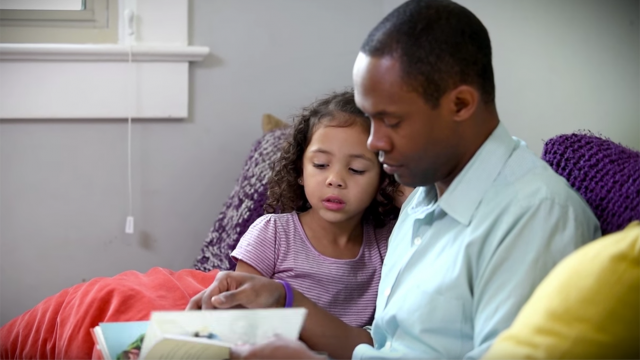

 NEW MEXICO.
NEW MEXICO.  UBER.
UBER. 
 RECORDS.
RECORDS. 



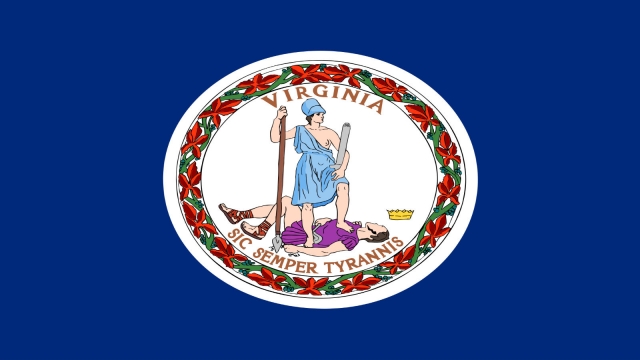

 The film tells a story that is particularly relevant today but connects back to stories that have been told for centuries as people have migrated, pushed out by the impact of decisions made about labor, land use, and sovereignty within and across borders. She knows that story well, because she has lived it.
The film tells a story that is particularly relevant today but connects back to stories that have been told for centuries as people have migrated, pushed out by the impact of decisions made about labor, land use, and sovereignty within and across borders. She knows that story well, because she has lived it. Chavez always found herself drawing, painting, making murals and using graffiti arts but it took meeting queer
Chavez always found herself drawing, painting, making murals and using graffiti arts but it took meeting queer 
